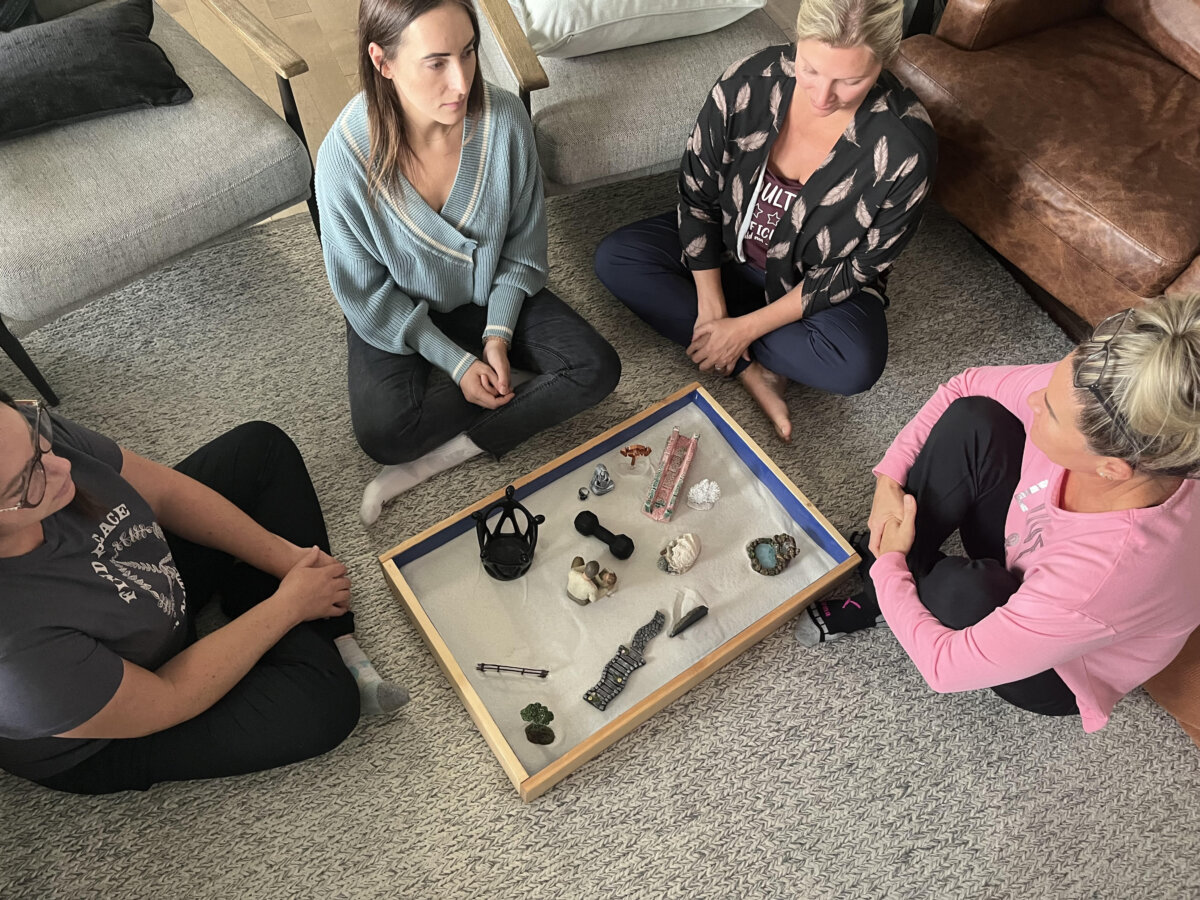Applied Sandtray Therapy Program
How does it work and what does this program include?
As part of this sandtray therapy training program, you can expect:
4 days of in-person experiential training building on the Foundations Training.
That is over 20+ hours of sandtray therapy training!
PLUS…
You will receive a chosen book for your learning needs.
You will get your own portable sandtray, many goodies including miniatures, some fun swag, fun experience and your own healing through the use of the sandtray!
AND... you’ll come away with the confidence needed to do sandtray therapy with all ages.
Cost: $1999 (taxes incl.) Flexible Interest Free Payment Plans Available

Locations/Dates
CALGARY, AB, TORONTO, ON & MONCTON, NB
COMING SOON

Want to become an Applied Sandtray Therapist?
At the Canadian Sandtray Institute we offer the Applied Training in Sandtray Therapy. This program accepts mental health professionals and graduates of a specified mental health program to partake in an in-person experiential learning experience. The program consists of 2 Levels offered over 4 days.
THE APPLIED SANDTRAY THERAPY SUCCESS PLAN
Completed!
(You are here)
Enroll in the training
Become a confident,
connected sandtray therapist
Level 1
Applied Knowledge in Sandtray Therapy
Day 1
Based on the content of this Level I am able to:
Describe the foundational principles and theoretical underpinnings of sandtray therapy as they relate to clinical practice.
Identify the roles and responsibilities of the clinician within the sandtray process, including facilitation skills and therapeutic stance.
Explain the ethical and legal considerations relevant to sandtray therapy, with attention to scope of practice, documentation, and client safety.
Discuss the importance of diversity, equity, and inclusion in sandtray therapy and evaluate how cultural factors influence client expression and meaning making.
Day 2
Analyze the role of self‑care, boundaries, and professional competencies in maintaining clinician effectiveness when conducting sandtray therapy.
Summarize key concepts in neuroscience that inform sandtray therapy, including mind – body integration and neural pathways involved in expressive therapies.
- Differentiate between explicit and implicit memory systems and explain how sandtray therapy facilitates access to implicitly held memories.
Examine arousal patterns and trauma responses and demonstrate how sandtray interventions can support clients in processing embedded trauma safely and effectively.
Level 2
Applied Skills in Sandtray Therapy
Level 2 is designed to help the clinician apply the necessary skills to effectively work with all ages. Using both non directive play therapy approaches and directive prompts, the clinician will learn how to process sandtrays across the lifespan with special attention to complex populations.
Clinians will review case studies relevant to the application of sandtray skills amongst individuals of all ages, couples, families and within group work.
Clinicians will work in a hands-on approach through role play and personal work and understand the importance of self work.
Day 1
Based on the content of this Level I am able to:
Differentiate between nondirective and directive sandtray approaches and apply each method appropriately across developmental stages.
Demonstrate the ability to process sandtrays with children, adolescents, adults, and older adults using developmentally attuned clinical skills.
Analyze the unique needs of complex populations and adapt sandtray interventions to support diverse clinical presentations.
Evaluate case studies involving individuals, couples, families, and groups to identify effective sandtray strategies for varied therapeutic contexts.
Day 2
Apply the skills when working with a partner in role playing.
Demonstrate key skills to enhance your effectiveness as a clinician/facilitator of sandtray therapy.
- Recognize the importance of self work in sandtray therapy.
Analyze themes, metaphors, and symbolic content emerging within client sandtrays using established clinical frameworks.
